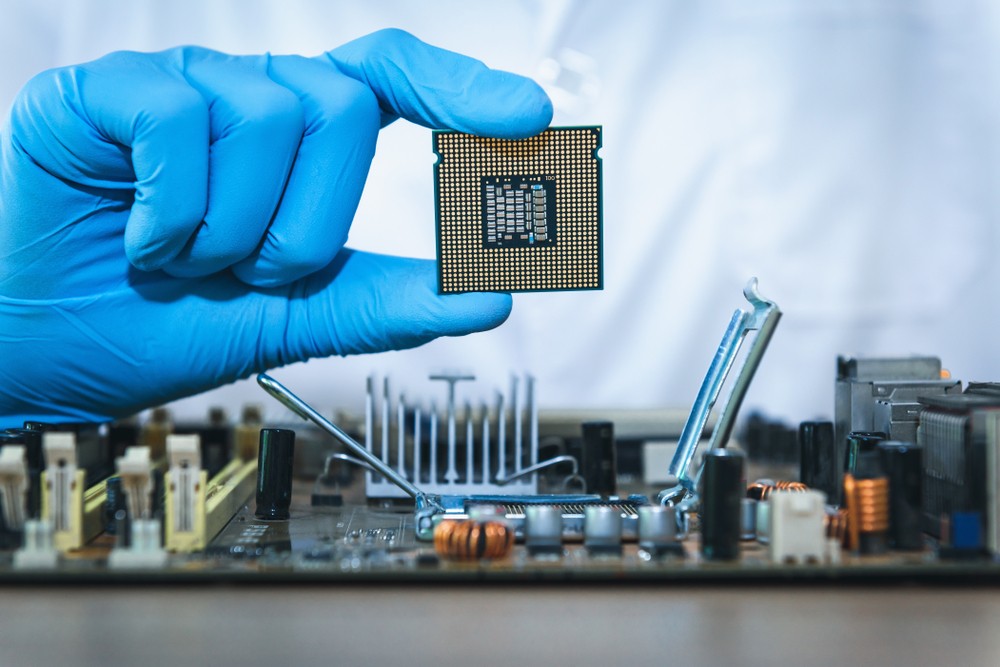Manufacturing Needs to Brace for a Protracted Semiconductor Shortage

The world is currently in the midst of an international semiconductor shortage. As different industries compete over existing supply, the shortage continues to intensify. The situation has gotten progressively worse since the year began, but now it’s coming to a head. Industry experts foresee additional shortages on the horizon. The solution? Manufacturers need to brace themselves for long-term supply and demand disequilibrium in the semiconductor market.
The semiconductor situation so far
Multiple factors contribute to the semiconductor shortage situation we’re currently experiencing.
- The first factor is, of course, the coronavirus pandemic. Early in the pandemic, many key semiconductor manufacturing facilities shut down. Although they’re now back up and running, we’re starting to see the result of backlogged and unfilled orders. Production is back to normal, but there’s a looming backlog of orders.
- The second factor is changing consumer behavior. The pandemic transformed how people work, interact with one another, and entertain themselves. Outside activities have now converted into at-home activities. With this change, there’s been a clear spike in demand for electronics — which need semiconductors to work. Demand for chips is higher than ever.
- Finally, there’s industrialization to consider. Increasing numbers of emerging markets have pushed production, to become producer economies. This has put major stress on supply chains and made global allocation of chips more difficult. This, coupled with the stronghold of chip production centered in a few East-Asian companies, has bottlenecked global supply for everyone.
Although there are a variety of other reasons why the semiconductor shortage situation exists, these three factors are the greatest contributors to our current woes. And they’re likely to persist in the coming months and years unless something changes.

Shortages will continue to loom
Semiconductor shortages are here for the long run. More and more products rely on semiconductors — from smart home products to consumer electronics to vehicles and beyond. Demand has outpaced supply for some time now. With the current delivery setbacks, it’s unlikely the industry will catch up unless diversification happens. That means orchestrating global supply of chips.
The problem is, global diversification for chip manufacturing will take a significant investment on behalf of any company that wants to compete with the likes of Taiwan, South Korea, and Japan. This high cost of entry has served as a production moat for East-Asian countries. But now, original equipment manufacturers (OEMs) have begun to crunch the numbers: lost revenue due to shortages versus the cost of long-term stability.

The first of more shortages to come
The U.S. government is moving forward with a thorough review of supply chains for “critical sets of products.” Of the products up for review are semiconductors and other key electronic components. This comes as the automotive industry faces a drastic shortage of materials needed to manufacture modern vehicles.
The batteries used in electric vehicles (EVs) require specific minerals, which are quite rare. One of the largest considerations in this investigation is dependency. While U.S. manufacturing companies produce much of what’s needed to craft a modern vehicle, rare earth minerals that are not easily found in the United States create a supply dependency.
According to the U.S. government, a potential short-term semiconductor shortage solution could be collaborating with Taiwan, the largest chip producer in the world. While this review strives to create long-term changes in the hopes of strengthening supply chains, the government is still limited in how much it can help.
At this time, the Biden administration plans to utilize government purchases to support the manufacturing industry and is still reviewing the option to subsidize domestic chipmakers. As it deliberates, the semiconductor crisis surges forward.
